 Your new post is loading...
 Your new post is loading...

|
Scooped by
Graham Watson
Today, 1:51 AM
|
The government says its overhaul of retirement savings will boost growth and pension pots.

|
Scooped by
Graham Watson
May 28, 3:10 AM
|
As a former chancellor, I know this challenge can only be met in a budget. But Starmer and Reeves must not waste their chance, says former UK prime minister Gordon Brown

|
Scooped by
Graham Watson
May 27, 8:13 AM
|
In its annual health-check for the UK economy, the IMF predicted growth of 1.2%, a marginal upgrade to its previous forecast.

|
Scooped by
Graham Watson
May 27, 1:11 AM
|
The government will no longer fund some courses for older learners in order to boost entry level training places.

|
Scooped by
Graham Watson
May 25, 9:38 AM
|
There is growing unease over the government’s direction – a way to restore confidence would be to scrap the ‘cruel’ two-child limit

|
Scooped by
Graham Watson
May 22, 12:41 PM
|
New trade deal with EU could make 41 border control posts built after Brexit redundant

|
Scooped by
Graham Watson
May 22, 3:03 AM
|
April figure more than expected and comes despite chancellor’s increase in employment taxes

|
Scooped by
Graham Watson
May 21, 10:44 AM
|
Bank torn between calls to cut interest rates to boost growth and need to damp down price rises

|
Scooped by
Graham Watson
May 21, 10:31 AM
|
Prices have risen faster than expected - raising questions about how many interest rate cuts there will be this year

|
Scooped by
Graham Watson
May 20, 1:03 PM
|
Huw Pill says rate cuts could fuel inflation resurgence and urges colleagues to be cautious before making further cuts

|
Scooped by
Graham Watson
May 20, 9:04 AM
|
Simon Spurrell was forced to sell his business because of £600,000 loss caused by Brexit red tape

|
Scooped by
Graham Watson
May 20, 1:59 AM
|
The chancellor tells the BBC the latest trade agreements with the EU, US and India will boost economic growth.

|
Scooped by
Graham Watson
May 19, 12:21 PM
|
Equality Trust says billionaires getting ‘ludicrously’ richer, with top two now wealthier than whole of 1990 rich list
|

|
Scooped by
Graham Watson
Today, 1:48 AM
|
The number of new vehicles made in the UK was the lowest figure for April - outside the pandemic - since 1952.

|
Scooped by
Graham Watson
May 27, 8:31 AM
|
The organisation, which has been assessing the UK economy, upgrades its growth forecast this year to 1.2%

|
Scooped by
Graham Watson
May 27, 1:19 AM
|
Annual rate of food price increases hits 2.8% driven by rising cost of fresh produce but price inflation for all goods is falling

|
Scooped by
Graham Watson
May 26, 3:00 AM
|
Chancellor hopes investment in homes, transport and energy will stave off pressure from MPs and discontent among public

|
Scooped by
Graham Watson
May 24, 7:02 AM
|
Editorial: Without bold reform which makes the rich pull their weight, rising inequality risks eroding public trust and fracturing social stability

|
Scooped by
Graham Watson
May 22, 12:33 PM
|
As pressure grows on chancellor to rethink constraints she imposed on herself, No 10 adds to her problems

|
Scooped by
Graham Watson
May 22, 2:55 AM
|
Borrowing - the difference between spending and tax income - was £20.2bn, up £1bn from April last year.

|
Scooped by
Graham Watson
May 21, 10:35 AM
|
Bills, food prices, and service costs are all rising - but there is some good news

|
Scooped by
Graham Watson
May 20, 4:49 PM
|
EU trawlers to get 12 years’ access to UK waters, but some in Devon are hopeful about lower costs and less paperwork

|
Scooped by
Graham Watson
May 20, 12:57 PM
|
A court will decide whether the firm should be wound up on Wednesday

|
Scooped by
Graham Watson
May 20, 2:01 AM
|
Impact of agreements on food, energy and defence may not be huge but chancellor believes it will draw investors to UK

|
Scooped by
Graham Watson
May 19, 12:23 PM
|
Keir Starmer has billed the agreement as a hat-trick after his India and US deals – here’s how things are likely to pan out
|



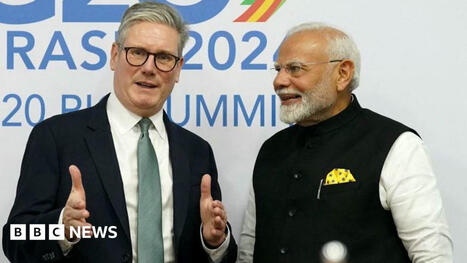


 Your new post is loading...
Your new post is loading...
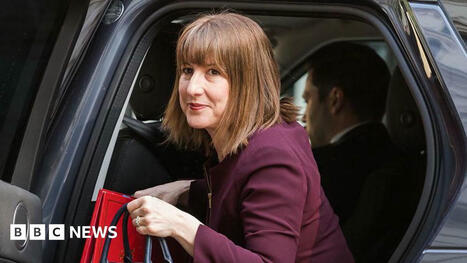
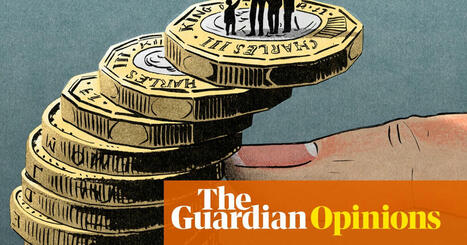
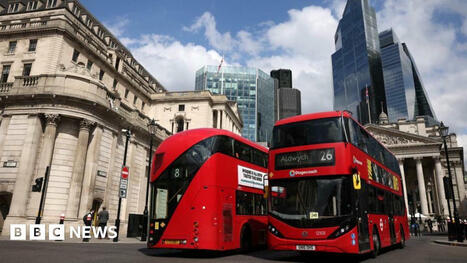
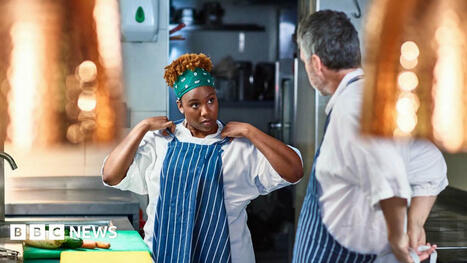
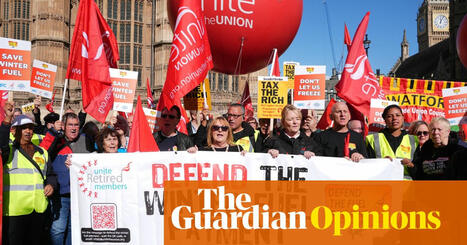
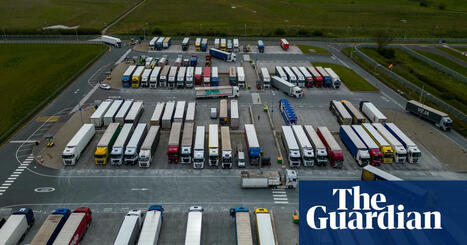



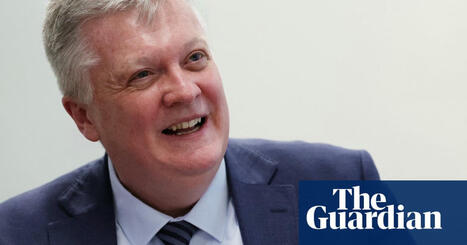


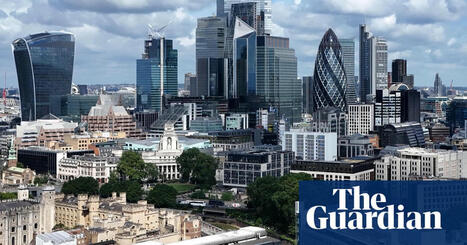

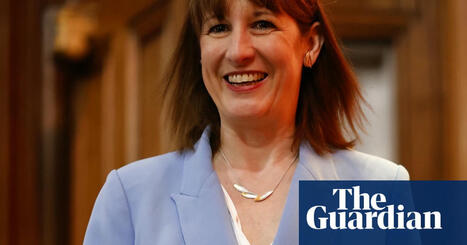
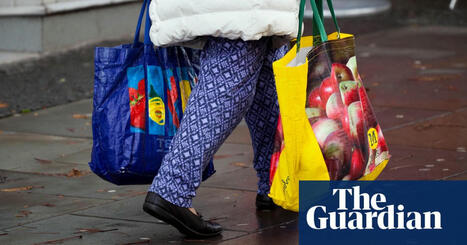

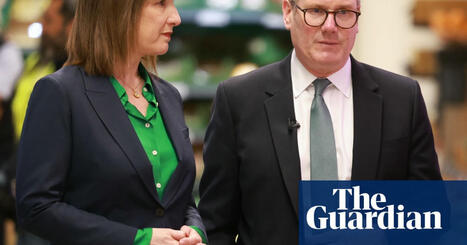

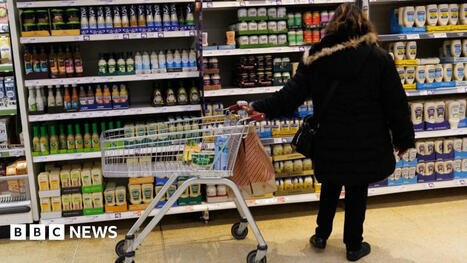
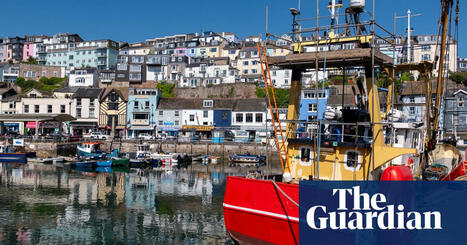
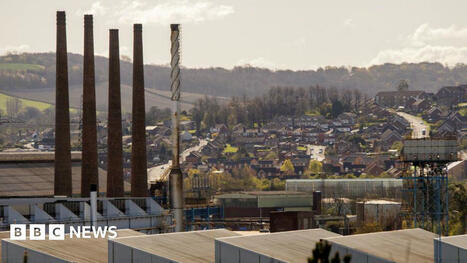

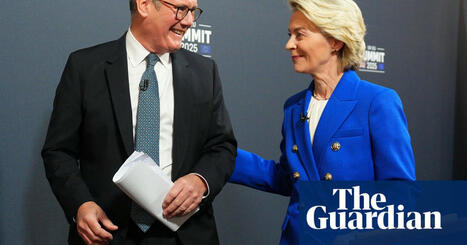





Faisal Islam on the UK-India trade deal suggests that the UK will, currently, be the largest beneficiary but that this could change over time, and that it will be interesting to see whether India's car manufacturers might target the UK market.
Either way, it's being portrayed as a win-win.